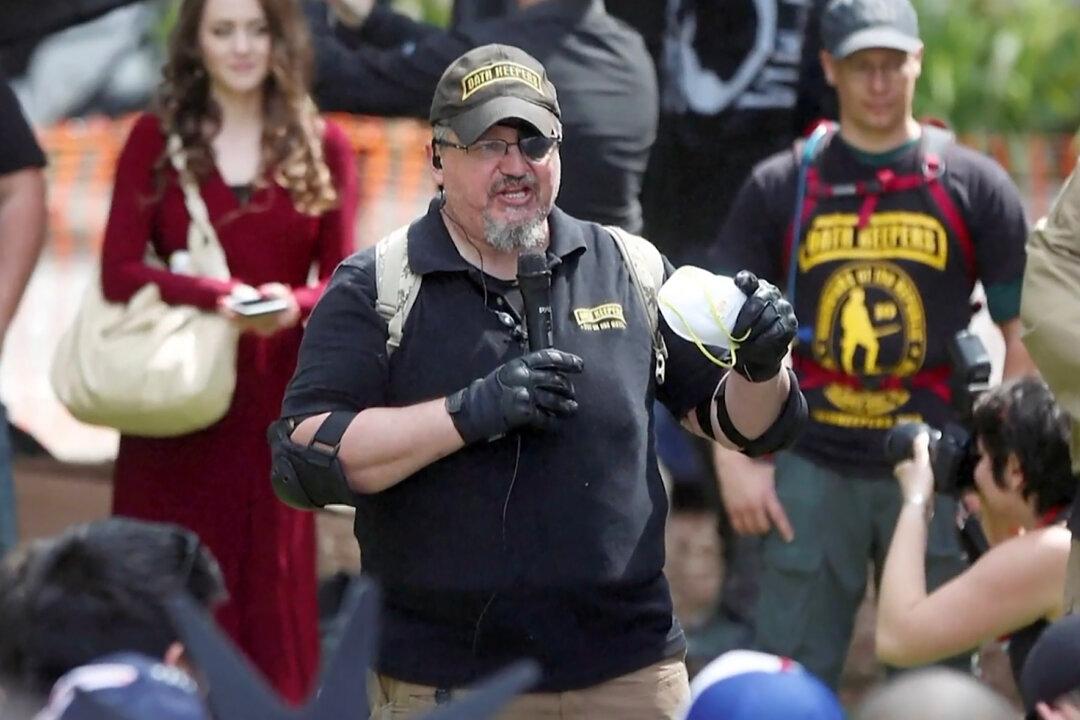Oath Keepers founder Elmer Stewart Rhodes III has fired the Texas-based defense attorneys in his Jan. 6 seditious-conspiracy case, alleging they missed key court deadlines and failed to file necessary motions and subpoenas.
Edward Tarpley Jr. of Alexandria, Louisiana, Rhodes’ new attorney, filed an emergency motion in U.S. District Court in Washington to delay the Sept. 26 trial by at least 90 days.





